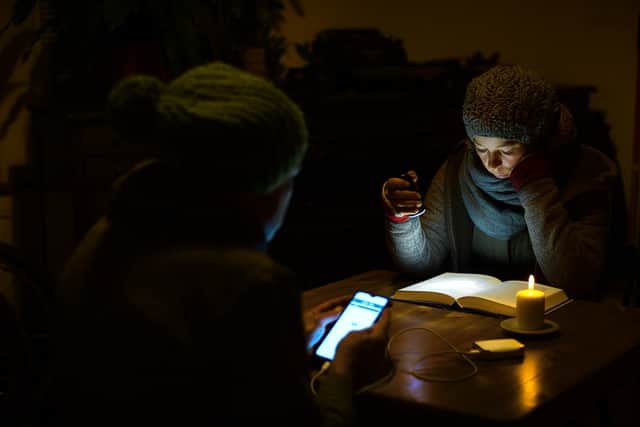National Grid ESO’s Demand Flexibility Service: what is emergency blackout scheme UK, can I get money back?
and live on Freeview channel 276
An emergency plan to avoid winter blackouts will see households paid to turn off their power during certain hours on Monday, the National Grid has said.
The grid’s system operator had said it is, for the first time, activating a live run of its Demand Flexibility Service, which asks households to reduce the amount of electricity they during peak times. The scheme was launched in November last year but has so far only been used in tests.
Advertisement
Hide AdAdvertisement
Hide AdThe scheme is administered by energy suppliers and allows the ESO to access additional flexibility when national demand is at its highest during peak winter days.
The launch of the live service means that some households with smart meters will be entitled to discounts if they cut their electricity use between 5pm and 6pm today (23 January).
It comes as the National Grid has also asked for three UK coal plants - two at Drax’s site in North Yorkshire and one at West Burton in Nottinghamshire - to begin warming up in case they are needed for the country’s energy supply amid the cold weather.
National Grid ESO said it had given the instructions in light of forecasts showing electricity supply margins may be tighter than normal on Monday, but added that its announcement should not be interpreted as a sign that electricity supplies are at risk and said “people should not be worried”.


How does the Demand Flexibility Service work?
Advertisement
Hide AdAdvertisement
Hide AdThe Demand Flexibility Service is a money-back scheme that is implemented by energy suppliers and monitored using a smart meter to help prevent winter blackouts. The voluntary scheme is due to stay in place until March, with 26 energy suppliers including Octopus Energy and EDF signed up to it.
Households in England, Scotland and Wales that have a smart meter are eligible to take part, with those who have signed up asked to reduce or move their electricity usage outside peak hours via a text message from their supplier.


If they use less electricity than they normally do during the allotted hours they will be paid for the savings. Households can still use electricity during peak hours and will not be punished if the same amount, or more, electricity is used than usual during that period. Signing up for the scheme does not give the grid the right to shut off supply to your home and you will still have total control over your electricity use.
National Grid previously confirmed the financial incentive for those who switch their power usage away from high demand times will be set at £3 per kilowatt hour. It means that people could be paid to run their washing machines at night, or charge their electric cars away from times of high demand, with the network operator saying households could save up to £100 through the limited scheme.
Comment Guidelines
National World encourages reader discussion on our stories. User feedback, insights and back-and-forth exchanges add a rich layer of context to reporting. Please review our Community Guidelines before commenting.
